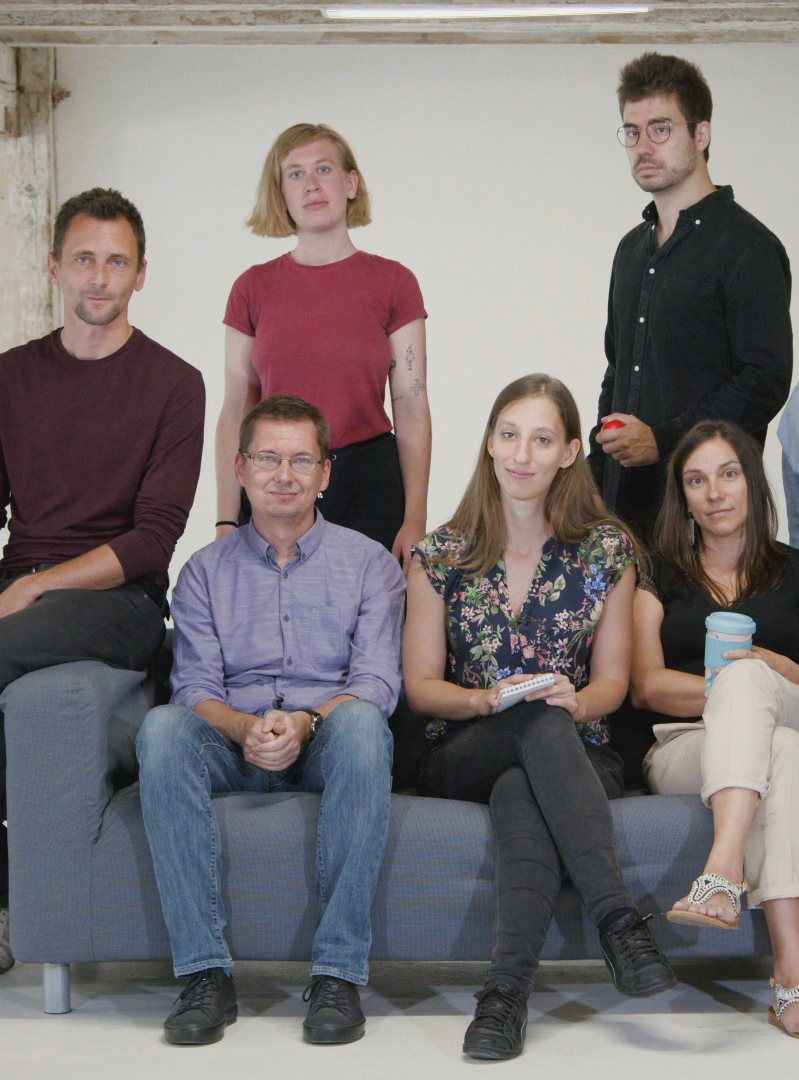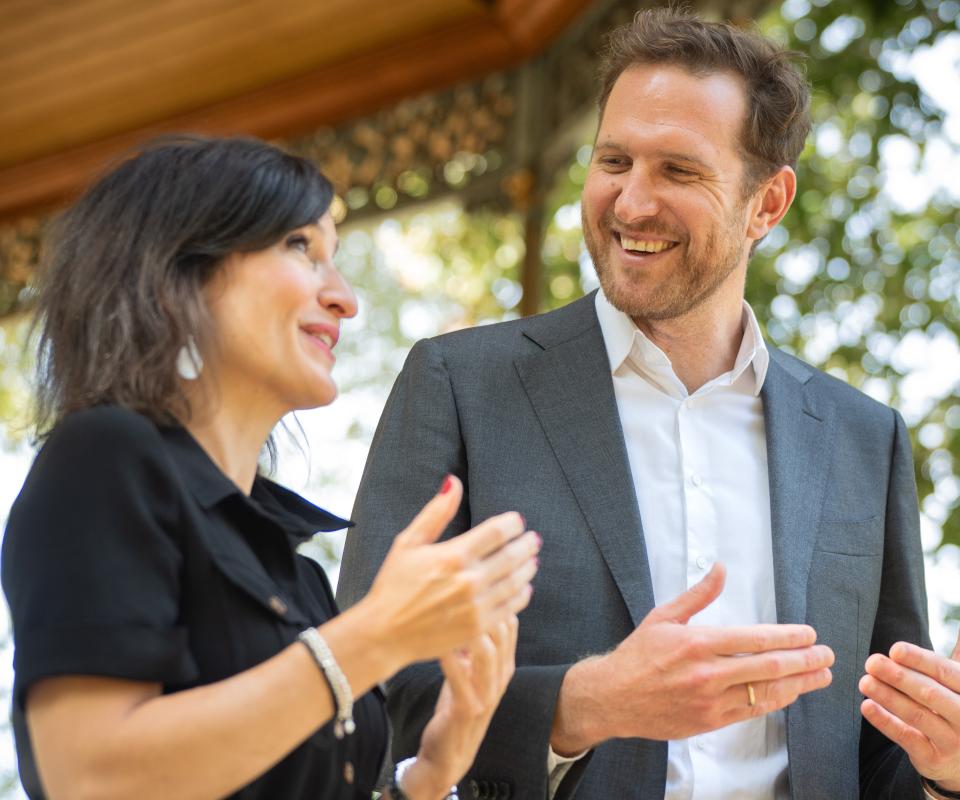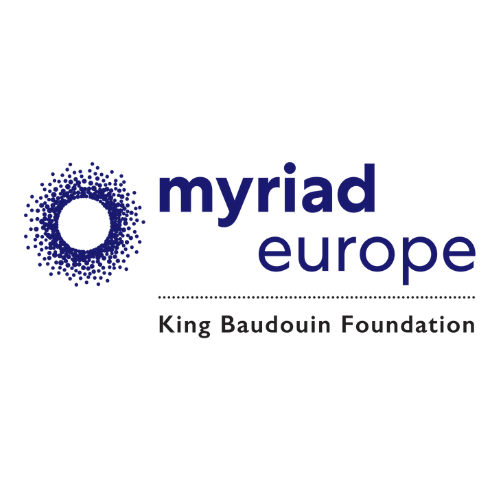
Keeping a media light on: lessons from Hungary
“The political pressure is coming through the business or the financial channels. We wanted to eliminate that. (…) And crowdfunding is a good, self-reflective way to do this business.”
Under Hungary’s present government, many independent or critical voices in the media have been silenced. Yet journalists have built new business models to go on holding the powerful to account. The founders of investigative news site Direkt36 see leaders elsewhere emulating Hungary’s Prime Minister Viktor Orban and want to share what they’ve learned as “pioneers” in the art of surviving, and thriving, in the face of populist assaults on free media. Direkt36 is supported by Civitates, the joint philanthropic initiative for democracy and solidarity.
His telephone ringing angrily in the middle of the night was – literally – the wake-up call for Gergő Sáling. It was 2014 and he realised his days as editor-in-chief of Origo, one of Hungary’s biggest private news sites, were numbered. The pressure he came under from bosses to lay off a story about a senior Orban ally signalled the end, too, of the site’s independence from the government.
“That was the moment when this pressure started to grow. I received phone calls during the night: ‘What are you doing?’ That kind of stuff,” says Sáling, as he recounts first-hand how an elected government muzzles the media in the 21st century. “It's very difficult to explain. There are many factors, many players … These are smart people ... I have no tape recordings or documents to prove what I went through. But, somehow, at the end, I was forced out of my job.”
Shining a light on corruption
Sáling’s reporter digging into expensive travels undertaken by the Orban aide was András Pethő, freshly back from a fellowship in the United States and keen to put new investigative reporting skills to use. “It was just routine journalism,” Pethő says of the story. But he quickly realised Budapest was not Washington. The government took Origo’s questions about the trips as “an orchestrated attack”. The site’s owners soon found that such stories were not in their interests.
Sáling and Pethő quit. With more and more of Hungary’s news media run by or beholden to the government, they were determined “to hold the powerful to account by shining a light on political corruption and other forms of injustice”. But how to pay for it?
Their answer is Direkt36, a non-profit online news site. In six years, it has built a base of more than 2,500 crowdfunding supporters who cover more than 75% of the high costs of producing long-form investigative articles by a team of seven, led by Sáling and Pethő. Major topics include government – and opposition – corruption, Russian and Chinese influence and, for the past year, the government’s handling of the COVID-19 pandemic and a sharp downturn in the economy.
Crowdfunding brings independence
“We saw from our previous experience that the political pressure is coming through the business or the financial channels,” says Pethő. Direkt36 sticks to fact-based, non-partisan reporting. But investors and advertisers in media which irk the government risk quietly losing other business.
“We wanted to eliminate that. We don't have to rely on investors. We don't have to rely on advertisers. We don’t have to rely on political actors or state agencies,” Pethő explains. “We don't have a CEO who sends us messages in the middle of the night.”
Partnerships are important, too. Charitable grants helped launch Direkt36 in 2015. Invaluable, too, was advice from German crowdfunded news site Krautreporter. Major Hungarian media relay Direkt36 stories to a wider audience, adding to its revenue. Joint reporting with foreign media includes taking part in two major international investigative journalism syndicates.
Ready to share survival lessons
With Hungary’s surviving independent media under even greater financial pressure as COVID-19 hits the economy, Sáling is delighted with a surge in support for the latest annual crowdfunding campaign and with a new grant of €144,430 over three years from Civitates: “It gives us flexibility and security. We can make longer plans, not just what will happen during the next six months.”
Welcome, too, is joining a network of media grantees supported by Civitates to share ideas. In Budapest, they are keen to improve audiovisual output and learn new investigative tools. But they also believe they can offer some hard-won insights into survival in what Sáling sees as a newly hostile environment toward independent media in countries around the world.
“I'm very happy when I hear that people in Western Europe are surprised [at] what's going on in Hungary. But I think we are really the pioneers, and this is waiting for everyone,” he says. “Journalists have to get used to it, especially if you’re covering high-stakes politics and business.”
Expensive legal threats from those targeted in investigations are a problem, says Pethő, as are personal attacks on social media and pro-government outlets against independent journalists. But, citing murders of investigative journalists abroad, including in Slovakia next door, he adds: “So far, we haven't received physical threats … so, hopefully, we are not there yet.”
Running a news outlet that has to battle for economic survival by nurturing its relationship with readers rather than advertisers or investors also brings benefits. Crowdfunding supporters get special newsletters and interact with the news team. Sáling says the Direkt36 model forces journalists to go beyond any lofty ideals about their role in a democracy and to demonstrate how they can have a real impact on what matters to people: “It brings down your ego,” he says. “Crowdfunding … is a good, self-reflective way to do this business.”
More info
Civitates is a joint Philanthropic Initiative for Democracy and Solidarity in Europe, by a network of foundations, including the King Baudouin Foundation. In November, it granted €2,467,000 to 11 independent public-interest journalism organisations across Europe for a period of 3 years in order to help theml develop in a sustainable, resilient and inter-connected way. In particular, it aims to help organisations operating in contexts where the market has failed to support independent journalism, media have been captured by state or non-state actors, or where there has been a hostile legal environment for public-interest journalism.
Other stories
Inspiring engagement!

Trust in the future
Europe
"Because we can take risks, because we are agile, philanthropic organisations should be key actors in this transition from the old world to a new one."
Other press releases

Unlocking the potential of international philanthropy
The King Baudouin Foundation launches Myriad Europe, marking its commitment to unlocking the full potential of international philanthropy in association with its partners in the …

Eupinions poll: before elections, Belgians wearying but still back Ukraine two years into war
According to the latest eupinions poll, European electors are showing some signs of fatigue with efforts to help Ukraine, after two years of war with Russia.